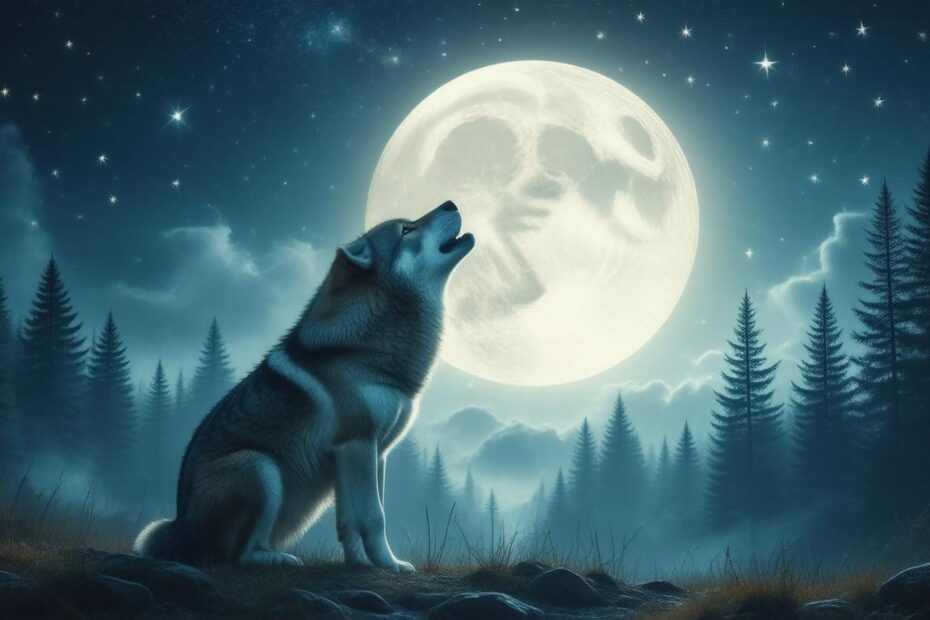🌟 Daily Awakening Quiz 🌟
The Wolf Full Moon, which occurs in January, is a captivating astronomical event steeped in mythology and cultural significance. Its name originates from the association with howling wolves during the winter months, when food scarcity often brings them out to vocalize in search of mates and to reinforce social bonds. In this article, we will explore the origins of the Wolf Moon, its historical context, alternative names, and its implications for sky watchers and nature enthusiasts alike.
Why Is It Called the Wolf Moon?
The term "Wolf Moon" is deeply entrenched in folklore, particularly from Native American cultures and Anglo-Saxon traditions. It is believed that this name was adopted due to the increase in wolf howling during January, as packs communicated to maintain group cohesion and define their territory. Contrary to popular belief, wolves do not howl at the moon; rather, they are more active at night and vocalize for a variety of social reasons. The howl serves as a long-distance communication tool among pack members, especially in the harsh winter months.
In addition to the Wolf Moon, this full moon has been called "Moon After Yule" in Anglo-Saxon tradition, referencing the ancient winter solstice festival known as Yule, celebrated around December 21. Various Native American tribes also had different names for this moon, reflecting their unique relationships with nature and the struggles of winter. Some alternative names include the "Center Moon" used by the Assiniboine people, and the "Severe Moon" typical among Dakota tribes, emphasizing the particularly harsh conditions of this time of year.
Historical Context and Cultural Significance
The full moon serves as a universal tool for marking time and tracking seasons. Many of the traditional names given to full moons in various cultures correspond to nature’s changes or specific celestial events. For January, the Wolf Moon is particularly significant as it represents survival and the stark reality of winter life. 
This lunar event also plays a role in agricultural practices, especially for farming communities who utilize the full moon to determine the best days for planting or harvesting crops. The Wolf Moon encourages a period of introspection and reflection, making it a powerful time for spiritual growth and renewal.
Viewing the Wolf Moon
In 2025, the Wolf Moon will reach its peak illumination on January 13 at 5:27 PM EST. Observers across the globe will be able to witness this stunning spectacle as the moon rises from the eastern horizon around sunset and remains bright in the sky throughout the night. Many people take this opportunity to engage in moon-gazing, social gatherings, or solitary reflection, often honoring the moon’s legacy in their personal rituals or cultural customs.
For those interested in astronomy, understanding the Moon’s phases helps enhance the appreciation of celestial patterns. The Wolf Moon is not just an isolated event; it forms part of a greater lunar calendar, with each full moon presenting unique opportunities for sky gazers and stargazers to connect with the natural world.
Conclusion
The Wolf Full Moon stands as a symbol of resilience and connection in the face of winter’s challenges. Its historical roots shed light on the practices and beliefs that have sustained cultures through centuries. Whether viewed through the lens of folklore, science, or personal reflection, this celestial phenomenon invites us to embrace the rhythms of nature, encouraging a deeper understanding of our place in the universe. Mark your calendars and prepare to appreciate the beauty and mystique of the Wolf Moon when it graces our skies once more.
